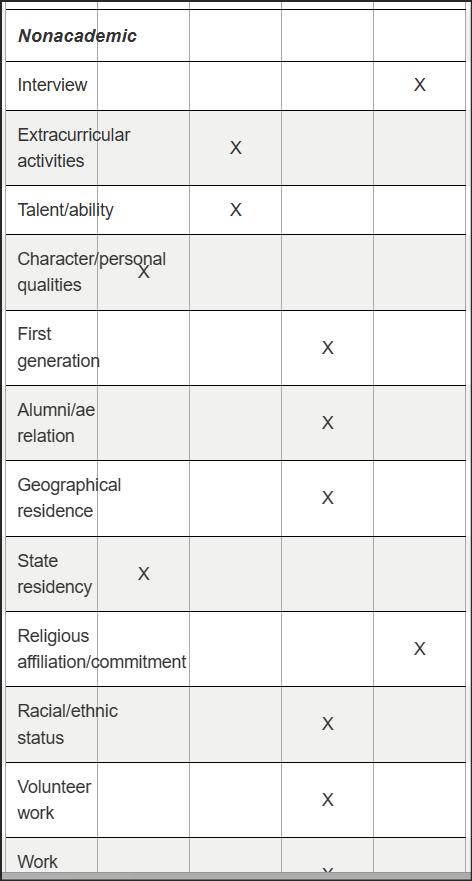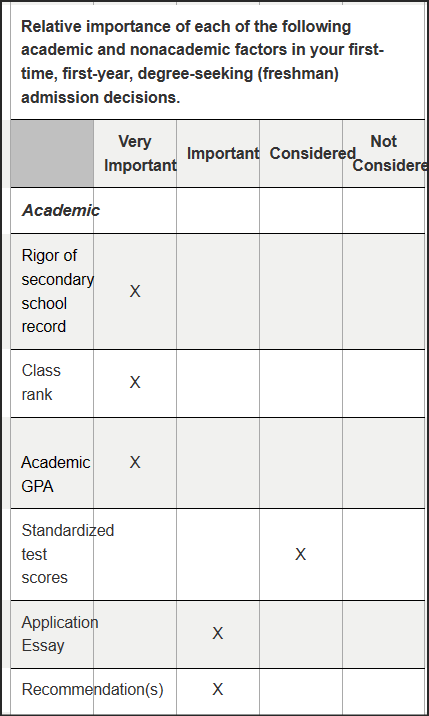
by James A. Bacon
Bills to ban preferential treatment for relatives of alumni at Virginia’s public universities flew through the 2024 session of the General Assembly in remarkable time. In a legislature marked by intense partisan divisions, companion bills passed subcommittees, committees, and the full Senate and the House of Delegates on unanimous votes. According to the Richmond Times-Dispatch, Governor Glenn Youngkin has indicated he will sign the bill.
“If we’re going to have an even playing field, let’s have an even playing field,” said Democratic Sen. Schuyler VanValkenburg, D-Henrico, who sponsored the Senate bill.
VanValkenburg’s statement presumably alludes to last year’s U.S. Supreme Court ruling restricting preferential treatment in college and university admissions on the basis of race. Many Republicans and conservatives argued that policies should not tilt the playing field for or against members of a particular race or ethnic group. Admissions, they contend, should be based on merit.
In this case, Virginia Republicans appear to be true to their meritocratic principles. Attorney General Jason Miyares was among those backing the ban on legacies. The Times-Dispatch summarized his thinking this way: “Colleges should judge applications based on what a student can control — such as classes, grades and extracurriculars — not the color of their skin or their parents’ school.”
I don’t expect the legislation to have much real-world effect. Preferential treatment for legacies and children of donors was on its way out anyway.
In the wake of the U.S. Supreme Court ruling on race in admissions, Virginia Tech ended legacy preferences last year.
The University of Virginia had relegated “alumnae relation” to a minor factor. In a list of 17 published admissions criteria classified as “considered,” “important,” and “very important,” legacy status was considered but not deemed important.

The Jefferson Council has studied admissions numbers for UVA and found that, adjusted for racial category, legacies admitted to the university had SAT scores in the same range as non-legacies. Had they been given preferential treatment, getting admitted over students with superior academic qualifications, one would expect their SAT scores on average to be lower.
As a political matter, a prohibition on favoritism for legacies could favor Republicans in the ongoing debate over the role of race in admissions. When Republicans argued that race/ethnicity should not be a factor, Democrats responded, yeah, how about legacies? If you believe in a level playing field, to borrow VanValkenburg’s phrase, how can you justify preferences for the sons and daughters of well-to-do parents? Assuming Youngkin signs the bill, that rhetorical gambit will be moot in Virginia.
A possible concern is how the legislation will affect alumni and donor loyalty to their institutions if their sons and daughters are denied admission. Loyalty to higher-ed institutions often runs in families. Inter-generational families tend to be more engaged and more generous to their alma maters. The Jefferson Council has heard numerous stories of progeny with high grades and SAT scores denied admission to UVA. The disillusion borne of rejection is intense. Some alumni have washed their hands of the institution.
However, legacies seem to be loyal to their parents’ alma maters, even if the alma maters aren’t loyal to their families. According to a UVA spokesman quoted by the Times-Dispatch, legacies accounted for 10% of students offered admissions to UVA but 14% of the first-year class. In other words, if offered a slot, legacies are far more likely than non-legacies to accept it.
Meanwhile, the battle over race in admissions will remain hotly contested. Public universities in Virginia have powerful internal constituencies that passionately believe that higher-ed is systemically racist and that the antidote to past discrimination is reverse discrimination. No one is under any illusion that university presidents will abide by the spirit of the Supreme Court ruling. They are actively devising workarounds to engineer desired demographic profiles of undergraduates, graduate students, and faculty. Admissions policies are a black box, impenetrable to any Board of Visitors members who might try to understand them.
Republicans are sure to continue pressing for “race-blind” admissions. But left-wing critics, now the dominant element of the Democratic Party, view “race-blind” as a code word for White supremacy. In matters of race, they contend, there is no such thing as a level playing field. Indeed, there is every indication that Democratic lawmakers will seek to insulate university presidents from legal counsels appointed by Republican attorneys general, as I described in yesterday’s post, “Scott Surovell’s End Run Around Jason Miyares.” Also expect Democrats to take a closer look at Youngkin’s appointees to university boards and block anyone who might pose a threat to the Diversity, Equity & Inclusion regime. We have not seen the last of nominees getting the Bert Ellis treatment. Ending preferences for legacies will change none of that.
James A. Bacon is executive director of The Jefferson Council.


Leave a Reply
You must be logged in to post a comment.